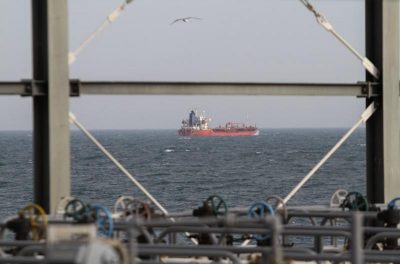Oil Prices Rise in Response to the U.S.-Iran Tensions in the Gulf
Rise and fall of profits can hint at war

A series of events have unfolded, which dates back to the U.S. President Trump’s decision to break the U.S. participation in the 2015 Iranian nuclear deal, which was signed by the U.S., Iran, China, the EU, France, Germany, Russia, and the U.K. The 2018 one-sided decision got the ball rolling into a possible U.S. military involvement, and all-out Middle East regional war, which would pull in Europe and Asia as well.
A series of mysterious attacks on ships unfolded, with no proof of responsibility, then a U.S. drone shot down by Iran, and finally, the U.S. ordered the seizure of an Iranian super-tanker in the Mediterranean Sea, carried out by the U.K. The world is waiting for the other shoe to drop.
Iran has made it clear it is going above the uranium-enriching guidelines, and this is obviously a tactic on their part to get negotiations started, with the goal of a final U.S.–Iran nuclear deal acceptable to both sides. Iran needs to be able to sell its oil, which is now brought to a standstill by U.S. sanctions, which Iran calls ‘economic warfare’.
Oil prices are sensitive to Arab Gulf tensions, and given the fact that most of the world’s oil passes through the Strait of Hormuz, any military escalation, or all-out war, would affect the global business community. In response, we have seen oil prices rise. Is this yet another U.S. engineered “Oil War”? It would appear, the recent rise in oil prices benefits everyone who has oil, except Iran.
Experts and those involved will all tell you the 2003 U.S. war on Iraq was all about oil. In an excellent piece by Juhasz, she wrote the following:
“Of course it’s about oil; we can’t really deny that,” said Gen. John Abizaid, former head of U.S. Central Command and Military Operations in Iraq, in 2007.
Former Federal Reserve Chairman Alan Greenspan agreed, writing in his memoir,
“I am saddened that it is politically inconvenient to acknowledge what everyone knows: the Iraq war is largely about oil.”
Then-Sen. and now Defense Secretary Chuck Hagel said the same in 2007:
“People say we’re not fighting for oil. Of course, we are.”
Pres. Donald Trump is a consummate businessman, with very strong ties to the oil industry, and a great deal of his domestic business outlook is tied to oil prices. He is facing a re-election process in November 2020 and needs the American economy to be at its best, as votes for him will be cast depending on the economy. He is generally seen to be a man of peace; however, Secretary of State Pompeo, and National Security Advisor Bolton who are both seen as hawks, with a specific eye on Iran, as that is the goal of Pres. Netanyahu of Israel. The Trump administration, in general, can be characterized as taking their Middle East foreign policy directly off the table in Tel Aviv.
U.S. State Department spokesperson Judd Deere said Thursday that President Donald Trump spoke with Israeli Prime Minister Benjamin Netanyahu.
“The two leaders discussed cooperation between the United States and Israel in advancing shared national security interests, including efforts to prevent Iran’s malign actions in the region,” Deere said.
Netanyahu’s office said Thursday,
“the two discussed regional developments and security issues, first and foremost Iran,”
Higher oil prices tend to improve investment in petroleum-exporting countries in the Middle East while promoting opportunities for U.S. exports. However, they also tend to curb export to petroleum-importing countries such as China, India, Japan, and Europe. China and Russia are both urging the U.S. and Iran to act with utmost restraint, and are encouraging diplomacy to be used to calm the tensions.
The current tension between Iran and the U.S. has driven oil prices up.
“Brent is pricing in more of the geopolitical risk than WTI,” said Phil Flynn, an analyst at Price Futures Group in Chicago.
The Brent oil price is not calibrated as a commodity, but rather now reflecting the risk of war.
The current ‘powder-keg’ tensions may last until after the 2020 U.S. election. Likely, military actions will not begin, but prices could remain high, or even go higher, which will be a benefit to many and creating more suffering for others.
*
Note to readers: please click the share buttons above or below. Forward this article to your email lists. Crosspost on your blog site, internet forums. etc.
This article was originally published on InfoRos.
Steven Sahiounie is a frequent contributor to Global Research.
Featured image is from InfoRos

